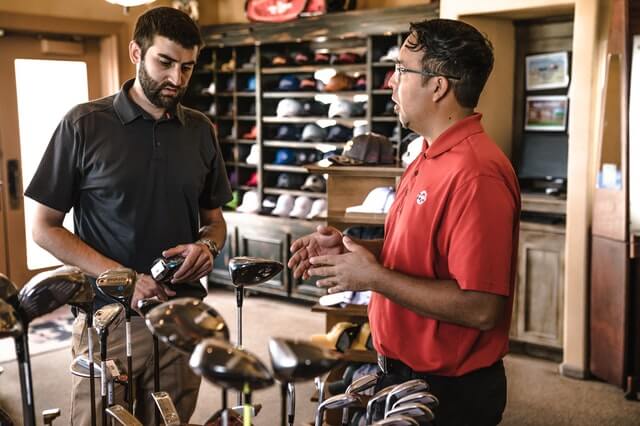Today’s topic is getting your intellectual property secured so that other people can’t poach or take all the interesting and unique things that you are building.
So intellectual property is a topic that I just have really found fascinating. And my disclaimer to you is that in no way am I an attorney. So please do not take this as advice, but rather firsthand experiences based on what I’ve kind of been working on over the last 10 years.
There’s a lot of things that when you’re going to start to hear the content today and then in this episode that you start to realize that you probably should look at how you can protect or secure it. So there are a couple of things that we’ll go through.
We’re going to start with the name of your company. Then, we’re going to talk about maybe some of the different processes, systems, or the likes, that you do and see if there’s anything that’s kind of unique.
When it comes to looking at naming a company, there’s a lot of different ways to approach it. And there is actually an episode that I did which was all about naming a company. I touched on the intellectual property stuff very briefly and I wanted to expand on that today.
Basically, when I am naming a company, I personally will not name a company that I feel I won’t have a shot at getting that name trademarked. Trademarks are going to be one of your first lines of defense, making it challenging for other people to be using that name or that mark for their business or for their products and services.
So let’s say you were going to start a moving company. And you’re like thinking of naming it “ABC moving”. I mean, it’s one of the most generic names and it’s been used by many people a lot of times, so wouldn’t be a great name by any means. But let’s say that was something that you really like calling your company.
What I would do from there before you approach an attorney is you can use the uspto.gov website and you can type in “ABC moving”. Check to see if that name is already trademarked. And what you’re looking for with trademarks, and this is where it gets a little complicated but I’ll keep this kind of at a one-on-one level for today, is that there are different classes to trademarks. What you’re typically doing is you are registering a trademark in a particular class.
For example, I own a digital marketing agency. So there’s a class of names that are for marketing. When you secure a trademark, it then means that that class that you registered it in is protected so that other people can’t use it in that particular class. With moving, for example, you would go and look through the different trademark classes and see which one fits and makes the most sense. And we’re going to, again, continue to talk through that.
If I were looking for “moving” and there are a variety of different classes, and as I’m looking through them in real-time, you’re trying to pick which one of those makes the most sense. In this case, there’s a class called vehicles or class 12, which includes mainly vehicles and apparatuses for the transport of people or goods by land, air, or water. What you’re looking for then to do is you’re trying to establish that class that your competitors would be in as well.
There are obviously other classes that make absolutely no sense. For example, in leather goods, it doesn’t really make a ton of sense to try and register “ABC moving” in that particular class.
Look for the class that makes the most strategic sense for you.
From there, you’re going to check again if anyone already has it secured. And this is where it gets a little bit complicated. This is where I like to look at leveraging an attorney to kind of give you a little bit of legal advice and information. They will do a more thorough analysis to see and check. Do they feel that that is a good trademark? Keep in mind, however, that good trademarks are a little bit relative. They can’t be descriptive in the sense of being too generic like you can’t trademark something that already exists that’s kind of generic like you couldn’t trademark the name “moving company” — you can’t trademark certain names. I mean, there’s a lot of restrictions around what actually makes for a good trademark in generic names and generic things tend to be very challenging to secure.
So when I’m naming, I want to make sure that I’m going through a variety of different lists and options. Then what I typically do is I’ll make a shortlist and I’ll send that over to my trademark attorney and I’ll say can you just give me a quick gut check on these five names? Are there any that are too generic that you’re like thinking it’s just not going to happen.
I like to be able to get that because then I can start to narrow it down a little bit. After I’ve done that, then you can ask your attorney to do his/her thorough research on these two names. Depending on your attorney, that could be $100 or up to $500 for an extensive search.
What they’re doing is they’re going to go out there and start to see if anyone else is using it. Has that ever appeared? Is there anything that’s similar to that name? Maybe somebody has the mark, “DEF moving company”, and when you submit it for a trademark, they’re going to say, “Oh, well, that’s a little bit confusing to yours”, and they’re going to deny yours. If you would have already named your company ABC moving, that means you’re never then going to be able to secure that mark, and you need to make the decision if you want to rebrand your company, or do you not care about it?
And when I go back to the “why” behind all of this, the goal is to start to secure assets so that if in the future you want to sell the business, not only will you have some assets that you can say and show are protected, but you also have assets that you’re able to defend.
If you’re starting to grab other things in addition to your name (I start with the name), but are there certain products that you offer that have unique names? For your restaurant, are there certain sandwich names that you want to trademark so that no one else can call your particular sub? Here in Buffalo, we’ve got chicken finger subs, and people have different names for those, such as Stinger subs and the likes. So, are there certain names that you would want to try and trademark so that if another sub shop opens up that they can’t call their sub, the chicken finger sub for example. Although I have to admit, chicken finger sub wouldn’t be a good trademark because it’s generically describing the type of sub. However, if you had a fun name for it, that is something that definitely would be trademarkable.
Ideally, I’m all about then looking for your products or services and looking for unique names, certain programs — if you have certain loyalty programs, you want to make sure that you are aiming to protect those.
Now, you’re all done in terms of the investment of an attorney and filing your market, and it’s about $1,000 per trademark. A lot of small business owners don’t take the time to do this. But then years later, they get a cease and desist letter that says “you’re infringing on our trademark”. And that’s a horrible thing to experience since now you already have that name built for your business. What do you actually do? Well, if it’s a legitimate claim, you’d have to rename your entire company and everything else from scratch. So to me, it seems like it’d be a good use of that thousand dollar investment to actually protect it upfront.
Now, the only other thing that I want to throw at you for this one-on-one episode is that once you’ve picked the trademark class that makes the most sense, if you want to look at extending that a little bit, you can also file for other trademarks.
So if you want to fly —if we go back to the moving company — there’s a trademark class that’s housewares and glass. Do you have a glass set that you want to have called “ABC moving”? Do you want to do anything around? Education? Are you going to have some educational stuff around “ABC moving”, and you’re going to teach other companies how to do that? Well, that would be, I believe class 41, which is education and entertainment — providing education and training. If you wanted to trademark t-shirts and have that name on those t-shirts, there are other classes of trademarks that you would end up securing. You’ve got to pay for each of those additional classes and continue to do the research to make sure someone isn’t using your name on that. But that’s another avenue to look at when you’re starting to protect your name or anything that’s unique.
I’m a huge fan of trademarks. I’m a huge fan of all things intellectual property. We’re going to talk in the episode tomorrow kind of about patents and copyrights and things like that. But I wanted to focus today on trademarks, which is one of the things that most local businesses don’t think about. And they can definitely get themselves in some hot water if they don’t protect their marks.
Thank you for tuning in today. Hope you have a wonderful rest of your day.
Get out there, make a change, and take some action.









